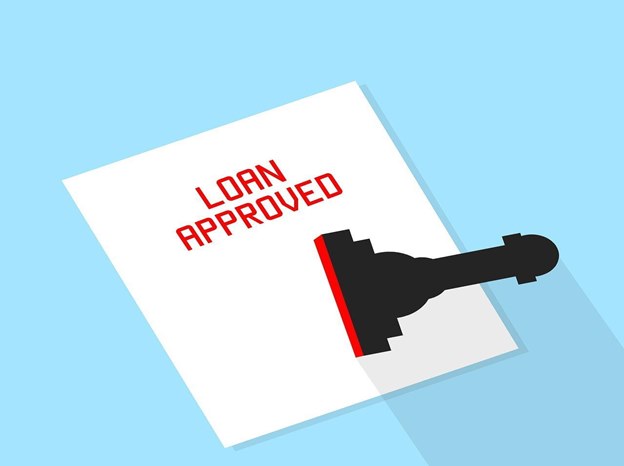People borrow money for different reasons, from buying assets to starting businesses, home improvements, debt consolidation, and emergencies. Borrowing money responsibly can improve cash flow and credit score and keep you afloat in a financial crisis. According to Forbes, 69% of Americans report an improved financial situation after borrowing money.
Many people wonder how to borrow money without threatening their credit score and financial stability. Luckily, many financing options depend on your unique financial needs and situation. Each option has its strengths and drawbacks.
Read on to learn seven effective ways to borrow one so you choose the best one for your needs confidently.
1. Banks

If you want a traditional source of funds, banks are an excellent choice. You can borrow money for a wide range of uses, including purchasing cars (auto loans), buying homes and real estate (mortgage products) and emergency expenses, debt consolidation, or education (personal loans).
Most banks also offer refinancing opportunities, whereby an existing loan is replaced with a new one with different interest rates and terms.
Some banks offer appealing perks to attract customers. For instance, it is not uncommon for banks to waive the origination fee –which caters to loan processing and ranges from 1-8% of the loan amount. Others have interest rate discounts for existing clients.
Advantages of Borrowing from a Bank
- Clear loan terms: the interest rate and repayment period, and amount are predetermined, so you plan your budget and spending
- Interest is tax-deductible
- No equity dilation
- Most banks pre-qualify you, giving you a glimpse of the loan rate and term before committing.
Disadvantages
- Lengthy application process
- Long turnaround time
- Require collateral
- A good or excellent credit score is mandatory, locking out people with poor credit.
- Restrictive covenants for some loans
2. Online Lenders

Online lenders are a good way to borrow money in the digital era. As opposed to the past, when you needed to visit a lender’s office with a massive pile of documents and fill out a paper application, today you don’t. Online lenders allow you to apply for a loan in the comfort of your home or office. They are an easy and convenient source; you get money in a few days.
Pros
- Good terms: Since most online lenders do not incur the costs of a physical retail location, they may offer low-interest rates and fewer fees than traditional lenders.
- A broad range of loan options: You may get student loans, mortgages, auto loans, and other loan types online.
- Before settling for one, you can easily compare multiple lenders’ interests, terms, fees, and loan amounts.
- Quick and seamless application process: Some lenders promise speedy funding for one day and two weeks.
Cons
- Some online lenders require a good credit score and a low debt-to-income ratio.
- Managing the loan online may be troublesome due to a lack of in-person customer service.
- Some online lenders are predatory and untrustworthy.
3. Loans from Family and Friends

These loans are a good option for borrowers in tight financial circumstances, such as job loss or unexpected health emergencies, who need family and friends to help them. Family loans are flexible and unstructured; the parties decide the amount, payment frequency, and interest.
Advantages
- Easy approval: When borrowing from your sister or friend, you don’t need a formal application, credit check, and income verification.
- Inexpensive: Family loans are cheaper than for-profit entities like banks and other lenders. You can negotiate a lower to no interest and rarely incur late payment fees and origination costs.
- Lenient terms: Compared to other lenders, family loans are lenient should you encounter an unexpected event like illness, allowing you to pause or suspend payments.
- With a family loan, you can avoid high-interest loans
Disadvantages
- Lack of clarity about terms due to the informal nature of the loans, which may cause misaligned expectations
- It may strain relationships with loved ones when you cannot repay them.
- No credit reporting means your good credit habits don’t benefit your credit score.
- Social awkwardness when reminding the borrower about the money
- Tax implications for the lender
4. Credit Cards

A credit card works like a loan. When you buy something with your credit card, the company gives you a loan to pay the merchant. Credit cards are convenient when used responsibly, allowing you to increase your credit rating while earning rewards and cash back.
Many ask whether taking a personal loan or using a credit card is better. The answer depends on your financial needs. A credit card is suitable for ongoing daily purchases, while a personal loan is excellent for more considerable expenses or debt consolidation.
Credit cards let you access cash advances, whereby you withdraw cash from the card. Rather than using the card to buy goods and services, you use it to buy cash. Like most loan options, cash advances have their strengths and weaknesses.
Pros
- You don’t have to fill out numerous applications and paperwork
- No undergoing credit checks
- Fast access to funds
- Easy withdrawals
Cons
- Costly as most providers charge high-interest rates and fees. For instance, most issuers charge a 30% cash advance APR.
- No interest-free grace period
- Low cash advance limits
5. 401(k) Loan
Most 401(k) retirement plans offer 401 (k) loans. The employees can get a loan for up to 50% of their savings to a maximum cap of $50,000, and they have up to five years to repay it.
The good thing about these loans is that the interest incurred is repaid to the borrower, not a lender like in traditional loans. Also, you don’t pay taxes and penalties when you borrow against your retirement savings, unlike when you withdraw the savings.
Benefits
- Simple application process
- Low rates, even with a poor credit score
- The loan interest goes to your account.
- Missed payments don’t affect credit score
- You can repay the loan with payroll deductions
Downsides
- The retirement plan must allow loans.
- Loans have limits
- You could jeopardize your retirement goals when you default
6. Money Mutual Loans

Many people wonder where they can borrow money with low credit scores. Money mutual loans for bad credit come in handy, serving an underserved population of borrowers sidelined by most conventional lending options.
MoneyMutual is not a lender but an online platform connecting people to lenders nationwide who provide loans. Typically, you fill out an online form, and lenders examine it to determine if you qualify for a loan –between $200 and $5,000.
If you do, the lender provides a loan offer, and you can assess the terms. If you accept the offer, you work with the lender, not MoneyMutual.
Pros
- Receive funds in as little as 24 hours after accepting the loan offer
- Loans can be used for many uses
- It provides an excellent platform to compare lenders and loan offers
- Suitable for people with a poor credit history
Cons
- Borrowers don’t have upfront information on interest rates. They may end up accepting offers with exorbitant rates.
- The site does not give specific details on the screening criteria
- Limited loan options; you are restricted to the lenders that reach out to you
7. Peer-to-peer Lending
Technology has revolutionized borrowing and lending significantly. While in the past, borrowers had to go through banks and other financial institutions to access financing, today, they don’t.
In fact, P2P lending bypasses traditional financing gatekeepers like banks, and people borrow directly from investors. It is a good option for startups and small businesses that need business operations financing but can’t access conventional loans.
Pros
- The quick and streamlined application process
- Surprisingly low rates
- Get funds faster. Some P2P sites promise 3-7 days after approval
- Ideal for borrowers who don’t qualify for traditional loans
- A broad range of loan terms and repayment options to meet distinct borrowers’ needs.
Cons
- Unfavorable terms for borrowers with poor credit
- Although you get low-interest rates, additional fees may apply.
- Lack of regulatory oversight available in most traditional financial entities
Tips for Borrowing Money
While borrowing money is beneficial, it can also be problematic and result in undue financial hardship. Here are a few best practices for responsible borrowing.
- Find the low-interest rates and fees to reduce borrowing costs
- Work on your credit score to qualify for better loan terms
- Besides interest rates, look for additional fees like application, origination, and late fees.
- If your loan is secured, the lender may forfeit the collateral upon default.
- Consolidate costly debts for streamlined and manageable payments
Summary
Borrowing money is a good option whether you want to return to school, buy a home, or cater to a medical emergency. You have many choices for secured and unsecured financing, from bank loans to online lenders, family loans, and credit cards, all with pros and cons.
Regardless of the option you settle for, make a plan to repay the money to prevent long-term financial problems. Also, create an emergency fund and monitor your spending habits to lower the chances of borrowing money in the future.



 Dave-Inspired: 11 Cash Advance Apps To Try
Dave-Inspired: 11 Cash Advance Apps To Try 